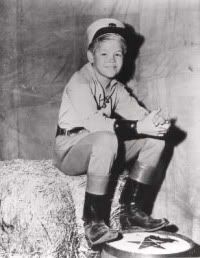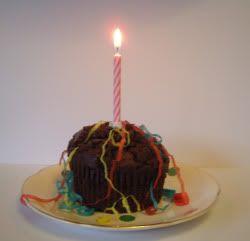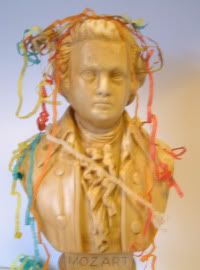By way of a change of tone and subject, I am posting this account by my father of his first trip to sea in the 1920s.This is a revised version of an article that first appeared in a Liverpool social history magazine.
Walking to a school that was not far from the docks on a cold, foggy December morning during the early 1920s, I could hear the maritime chorus coming from the River Mersey, accompanied by the regular blasts from the fog horns. There was the sound of the short, sharp and urgent hoots of the ferry boats already busy on their daily chores, ferrying passengers across the busy shipping lanes and the impatient signals from the tiny tugs as they chaperoned their charges alongside the quayside berths. One could hear the timid hoot of the low brow coaster, keeping a low profile in the shallower water. Then there was the wail of a poverty-stricken tramp, returning from working the world's waterways, its rusting hull giving it a geriatric appearance as it hoped to find a berth and a cargo.
There would be no mistaking the angry bellow of the great transatlantic liners, having probably missed the tide but never missing an opportunity to demonstrate their status on the busy river. The maritime chorus was as familiar to me as the dawn chorus might be to a farmer's boy.
Being at an elementary school and free from parental pressure and homework I could, together with my friends, enjoy the freedom to play on the foreshore and watch the never-ending procession of ships sailing down the river - naval boats, some doing trials, and troopships and a great variety of cargo boats servicing the vast Empire. There were Welsh boats, the Isle of Man boats and the Dublin and Belfast boats full with holidaymakers. Then, of course, the great liners, passengers lining their decks, the Cunarders off to America, the Canadian Pacific boats off to Canada, the Union Castle off to South Africa, the Steam Navigation liners off to the west coast of South America, the Elder Dempster ships off to the west coast of Africa and the Blue Funnel boats with their Chinese crews off to the Far East. It all furthered our knowledge of geography and when our fourteenth birthday arrived there might be an opportunity to fill a vacancy for a bellboy, a deckboy or even a kitchen boy. We could then find out what lay beyond the horizon.
Such an opportunity did arise for me when I had the good fortune to be signed on as a kitchen boy on a transatlantic liner. First trips are always memorable if only for the awful seasickness, especially in January when the North Atlantic can be at its most inhospitable.
Sailing day could not come quickly enough. The activity on Ocean Road, the road that led to the docks, was as busy as Wembley Way on Cup Final Day. Several liners were sailing, as well as a couple of cruise liners. Scouse seafarers would be exporting their peculiar chauvinism, a characteristic recognised worldwide for two or more centuries. The married men were easily recognised, not very sociable and bleary-eyed, having left a very hospitable bed for the inhospitable Atlantic. Bowler hats would indicate an officer, just like the Armistice Parade. The stewardesses went by taxis, financed by their tips rather than their wages. The teenagers, in better spirits, exchanged greetings with shipmate camaraderie.
The ship was already groomed for the Atlantic crossing. She was flying the Blue Peter and the company flag, the funnels already trailing smoke and the two gangways carrying a continual procession of passengers, officials, workmen and crew. The baggage and mail were being hoisted aboard in slings and lowered into the hatch. There was a great sense of urgency that was quite stimulating. Tiny tugs were already alongside like bridesmaids waiting to escort the bride to the altar and at the landing stage a huge crowd was waiting to see off the 'bride', bedecked in streamers. Like some weddings, it could turn out to be stormy.
I made my way to my allotted 'glory hole', almost on the water line. The portholes would never be open at sea. About twenty other kitchen hands shared the same awful accommodation. The anchor chutes ran through the glory hole so that sleeping in a storm would be like sleeping in a church belfry.
First trippers were always welcomed and helped. But the conversation appeared to be solely about the previous night's conquests, which many of the girls in question would have disputed. Adolescence was about to be by-passed in this man's world and from being street-wise I was to become worldly-wise.
I was escorted up to the promenade deck for the Board of Trade muster. We were to file past a formidable group of officials as well as the much-decorated ship's Captain who had nearly every naval honour from the VC downwards. I was reminded that I would have to call out the number of my lifeboat station as well as where my fire station was. As I fearfully approached, the ship's Captain stepped forward and asked "
Is this your first trip, young man?"
"
Yes, Sir."
"
What is the abandon ship signal?"
Nobody had told me. I was speechless.
"
So you join my ship and are ready to put to sea and you don't know the signal for abandoning ship and you didn't bother to find out? You had better find out before I next see you. We have enough problems with my passengers without having problems with my crew."
At three o'clock we were ready to depart. The last rope was cast free and the great liner slowly responded to the tiny tugs' pressure. There were frenzied farewells, cheers and tears as the liner, trailing hundreds of streamers, edged away, giving a mournful blast on her whistle, dismissing her escort of tugs and turning 180 degrees to head down the Mersey, trailing smoke until she vanished from sight and many of her passengers vanishing from the lives of many of the bystanders.
The elegance and opulence of the great liners was the stuff of folklore amongst Liverpool seamen as they chatted in the city's pubs. The luxury of the public rooms in different ships would be compared: the grandeur of Royal Suites, the solid marble toilets, the skilled woodcarvings and the reproduction French and Italian Renaissance furniture.
Stewards would discuss how the famous and infamous behaved when they travelled. But bedroom stewards always maintained a discreet silence.
My first glimpse of real luxury was on the first night. Before dinner, I could hear the bugler blowing
'The Roast Beef of Olde England'. The huge charcoal grill was glowing. I had been shown how to turn the ribs of beef in the huge ovens and I was to replenish the three sauce boats for serving with the grouse. The larder chef had carved from ice an aeroplane with the caviar in the cockpit for the table of a famous airman. Assistants were arranging garnishes and supplementary sauces. The soup chef was exercising his large vocabulary of obscenities - his consommé had not clarified. Like a bookmaker, he was trying to guess which of his six soups would be the favourite. He had long been addicted to this peculiar brand of excitement. The entrée chef was wondering whether he had produced enough artichoke bottoms for his
Marie Louise garnish. The fish chef would be equally preoccupied as he arranged the pans for his
Sole Meuniere and hoped that the poached salmon in its court bouillon would be the main attraction. He kept a wary eye on the friture, primed for the whitebait. The assistants on vegetables had laboured, preparing crates of fresh runner beans and garden peas. 'Spud barbers' produced hundreds of turned potatoes for
Pommes Chateau with quick flicks of the wrist. The confectioner and his assistants would be beavering away producing birthday cakes and petit fours and a small mountain of strawberries would be marinating in orange juice and curacao for the popular
Fraises Romanoff. The pantryman in his tiny pantry would be preparing thousands of butter pats, salads and cheese boards and, later in the evening, would prepare sandwiches for the public rooms. It was all a far cry from 'jam butties' and 'scouse'.
The orchestra was playing in the Minstral Gallery, the programme of music appearing opposite the menu. I caught my first glimpse of the dining room with waiters moving with the professionalism of the butlers that I had seen in films. I assumed that they came from a posh part of Merseyside. But they had mostly graduated from bellboys from third class. It was all so difficult for a boy from a deprived environment to comprehend. What I was seeing was pure theatre. When the waiters came crashing through the swing doors it was similar to an actor coming from the stage into the wings.
The first waiter to arrive banged down his tray, laughed and said: "
I have a right pair out there! They look at the Borsch Polonaise on the menu and think it's something by Chopin and then order Pomp and Circum-bloody-stance from the music. They probably think the Londonderry Air is an Irish soufflé."
I was amused how the waiters satirised the menu terminology and to discover that they were just ordinary Scousers.
One waiter was having trouble with his cuffs. He removed his jacket to reveal a vest, no shirt and a cardboard front with the cuffs suspended from lengths of string that ran over his shoulders. When he returned his jacket he was impeccably dressed.
There was a steady stream of waiters crashing through the swing doors, joining various queues, sweating, swearing and swaying with the roll of the ship, knowing there would be a repeat performance with the second sitting.
Two days later, west of Ireland, we ran into bad weather. The roll of the ship, the awful creaking noise and seeing the horizon rise and fall brought on a feeling of nausea, the back of my neck went clammy, the colour drained from my cheeks and the heat of the kitchen and the smell of the food sent me racing to the nearest chute to be violently sick. The glamour of seafaring was physically surrendering and my embryonic social conscience had been severely shaken by the hierarchical class structure of a transatlantic liner.
The first class passengers had the boat and promenade deck. They lived on A deck which had many large public rooms, a cinema and all the amenities of a first class hotel, with probably a more liberal supply of luxury food.
The tourist class had a small aft deck. They did not dress in dinner jackets for dinner and had a much downgraded menu choice. They had a lounge but far fewer amenities and their sleeping quarters were on C Deck.
The third class restaurant was on D Deck. I was amused to see the outside leaves of cauliflower being puréed, mixed with a sauce seasoned with mace and served to the third class passengers as spinach. They had very little deck space and just a small lounge on the forrard poop deck. Their sleeping quarters were below the water line and they would have no conception of the cocktail parties, the deckchairs on the promenade and boat decks, nor the care and attention from the deck stewardesses who served beef tea each morning. They would not have access to the cinema or the well-equipped gymnasium, but what they did have was sheer luxury compared to the conditions for the catering crew.
We emerged from our glory holes and came up the companionways like commuters from the underground, the stewards having been allocated varying duties according to rank and length of service. Some would wash the restaurant floors, draw stores or clean silver as well as laying their station tables for breakfast. We would serve their breakfast at 7 am. The Board of Trade had decreed that eggs could be served on Thursdays and Sundays and fruit on the same day. On many ships that would be dried fruit in a pudding.
Of course, the engine room and deck personnel enjoyed far better conditions. They had their own kitchen and mess rooms and quite good food, although when an ambitious ship's cook decided to give them poached eggs there was nearly a mutiny. He was accused of frying their eggs in water.
Having been fed, the stewards then dressed to serve breakfast and take up their stations in the restaurant. They would have a short break until dinner but it would be nearly 9pm before they ate again. There were no recreation rooms, alcohol was forbidden and the deck space allotted was near the ship's bow and often awash with water.
We too had a very long day before we returned to our glory hole. There, the accommodation offered two-tier bunks, one wooden table and two wooden forms to sit on. A small locker was provided for personal belongings while our suits hung on the bunk rail.
We had two 'Abandon Ship' drills when I was again asked what the signal was. The ship's inspection was incredibly strict. The Captain's party was preceded by the ship's bugler with only essential staff remaining in the kitchen.
I was amazed to find that we were expected to eat on the kitchen worktops using boxes for seats. The stewards were less fortunate. They had no dining room and ate more or less when and where they could, 'on the wing'. We called them '
wingers'.
The stewards and assistant cooks were paid £7 and 7 shillings per month. The voyage lasted 21 days, after which we were dismissed to go on the dole until the next sailing day. I received £3 and 5 shillings per month.
In spite of the hardship, I did more than 100 Atlantic crossings and enjoyed the wonderful camaraderie and the Scouse humour as well as seeing the world.
*****
The liner described here was the Duchess of York (pictured).I would only add that when I visited Liverpool a few years ago I stood alone on the dockside at sunset and became unexpectedly emotional. This was because I knew that my father, my great-grandfather and other members of my family had sailed many times from that spot. But also because a way of life had disappeared to be replaced by a rather soulless 'heritage attraction'. It's probably foolish to mourn the passing of industries that were based on so much hardship and poverty but I don't think it's sentimental to celebrate the spirit and the humour of the people who worked in them.
 2nd March, 1958
2nd March, 1958 Walking to a school that was not far from the docks on a cold, foggy December morning during the early 1920s, I could hear the maritime chorus coming from the River Mersey, accompanied by the regular blasts from the fog horns. There was the sound of the short, sharp and urgent hoots of the ferry boats already busy on their daily chores, ferrying passengers across the busy shipping lanes and the impatient signals from the tiny tugs as they chaperoned their charges alongside the quayside berths. One could hear the timid hoot of the low brow coaster, keeping a low profile in the shallower water. Then there was the wail of a poverty-stricken tramp, returning from working the world's waterways, its rusting hull giving it a geriatric appearance as it hoped to find a berth and a cargo.
Walking to a school that was not far from the docks on a cold, foggy December morning during the early 1920s, I could hear the maritime chorus coming from the River Mersey, accompanied by the regular blasts from the fog horns. There was the sound of the short, sharp and urgent hoots of the ferry boats already busy on their daily chores, ferrying passengers across the busy shipping lanes and the impatient signals from the tiny tugs as they chaperoned their charges alongside the quayside berths. One could hear the timid hoot of the low brow coaster, keeping a low profile in the shallower water. Then there was the wail of a poverty-stricken tramp, returning from working the world's waterways, its rusting hull giving it a geriatric appearance as it hoped to find a berth and a cargo.







 Today is this blog's first birthday. Champagne corks have been popping and streamers flying all morning here at Lupin Towers. Even poor old Wolfgang, who silently watches over my musings, fell foul of a party popper.
Today is this blog's first birthday. Champagne corks have been popping and streamers flying all morning here at Lupin Towers. Even poor old Wolfgang, who silently watches over my musings, fell foul of a party popper. Well, Liz MacDonald's toy boy didn't last long, even though he came with batteries included. Indeed, they must have been those Duracell batteries that just keep on going when toy boys fitted with an inferior product are sleeping the sleep of the sexually satiated.
Well, Liz MacDonald's toy boy didn't last long, even though he came with batteries included. Indeed, they must have been those Duracell batteries that just keep on going when toy boys fitted with an inferior product are sleeping the sleep of the sexually satiated.